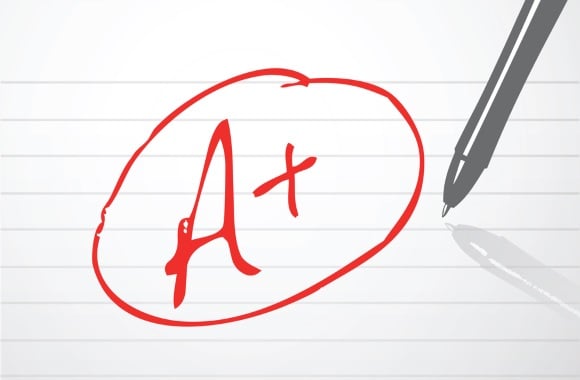D
deleted171991
It seems we are turning into a banana republic not only in Washington.
There are multiple forces at work here, trying to destroy the special standing and prestige of American medical doctors. Let's not forget that about half of the AAMC board is made-up of non-physicians, some of them nurses! The USMLE and our board exams were already a joke when compared to most developed countries, let's continue the erosion.
On one hand we have nurses and hospital administrators trying to dumb down medical education and close the chasm between how doctors and nurse practitioners are viewed, trying to reduce the former to the latter, and both to trained monkeys. Also, there has been a long-standing movement, initially started by feminist nurses and later happily embraced by business people, to castrate and diminish the American physician, to "re-educate" us, after a communist model (read up on Chinese brainwashing systems). Any resistance, any disobedience is labeled as "disruptive physician", and results in serious consequences to one's career.
This starts from medical school and especially residency. On one hand, residents are taught to behave like nurses, to adopt a shift-worker mentality and renounce the hippocratic and professional one. On the other hand, they are treated as assembly lane blue-collar workers, replaceable cogs in the healthcare factory. I got more respect as a medical student in my native country than I get as a double board-certified American attending. This results in both trainees and attendings not standing up for their own or their colleagues' rights, quietly accepting verbal and professional abuses that would have resulted in firing the culprit just 20-30 years ago.
This, plus the coddling of the recent generations, especially Z, has resulted in so many snowflakes one would think we are in Antarctica. They are also the reason why I skipped this forum for the last 6 weeks (and will continue doing so). The amount of whining is just exhausting. It's just a truly mediocre generation (with few exceptions) who needs diapers even in their tweens. If you read the AMA motivation behind dropping the score system for Step 1, you will notice this phrase: "Our student, resident and physician members voted to endorse a pass/fail policy, in part, because we know our current residency selection system is causing significant distress for our students." The babies were crying!
And let me tell you, the babies truly suck as doctors, when compared to previous generations of trainees. This will only lead to even more dilution of the value of a medical diploma, which is the whole point of this (plus a nice side effect of populism among the *****s who don't realize that the easier the path the less valuable). The current generations of residents SUCK as it is, some are downright scary; now they truly won't know much more than their nurse practitioner "colleagues". It all starts in medical school, with the same pass/fail system having been adopted even by supposedly prestigious medical schools, such as Yale. It's the healthcare version of amateur Olympics; participation is all that matters, like in (post-)Millennial kindergarten contests. Everybody gets the same diploma.
YOU CAN'T IMPROVE WHAT YOU DON'T MEASURE!
Until next time...
There are multiple forces at work here, trying to destroy the special standing and prestige of American medical doctors. Let's not forget that about half of the AAMC board is made-up of non-physicians, some of them nurses! The USMLE and our board exams were already a joke when compared to most developed countries, let's continue the erosion.
On one hand we have nurses and hospital administrators trying to dumb down medical education and close the chasm between how doctors and nurse practitioners are viewed, trying to reduce the former to the latter, and both to trained monkeys. Also, there has been a long-standing movement, initially started by feminist nurses and later happily embraced by business people, to castrate and diminish the American physician, to "re-educate" us, after a communist model (read up on Chinese brainwashing systems). Any resistance, any disobedience is labeled as "disruptive physician", and results in serious consequences to one's career.
This starts from medical school and especially residency. On one hand, residents are taught to behave like nurses, to adopt a shift-worker mentality and renounce the hippocratic and professional one. On the other hand, they are treated as assembly lane blue-collar workers, replaceable cogs in the healthcare factory. I got more respect as a medical student in my native country than I get as a double board-certified American attending. This results in both trainees and attendings not standing up for their own or their colleagues' rights, quietly accepting verbal and professional abuses that would have resulted in firing the culprit just 20-30 years ago.
This, plus the coddling of the recent generations, especially Z, has resulted in so many snowflakes one would think we are in Antarctica. They are also the reason why I skipped this forum for the last 6 weeks (and will continue doing so). The amount of whining is just exhausting. It's just a truly mediocre generation (with few exceptions) who needs diapers even in their tweens. If you read the AMA motivation behind dropping the score system for Step 1, you will notice this phrase: "Our student, resident and physician members voted to endorse a pass/fail policy, in part, because we know our current residency selection system is causing significant distress for our students." The babies were crying!
And let me tell you, the babies truly suck as doctors, when compared to previous generations of trainees. This will only lead to even more dilution of the value of a medical diploma, which is the whole point of this (plus a nice side effect of populism among the *****s who don't realize that the easier the path the less valuable). The current generations of residents SUCK as it is, some are downright scary; now they truly won't know much more than their nurse practitioner "colleagues". It all starts in medical school, with the same pass/fail system having been adopted even by supposedly prestigious medical schools, such as Yale. It's the healthcare version of amateur Olympics; participation is all that matters, like in (post-)Millennial kindergarten contests. Everybody gets the same diploma.
YOU CAN'T IMPROVE WHAT YOU DON'T MEASURE!
Until next time...
Last edited by a moderator:



